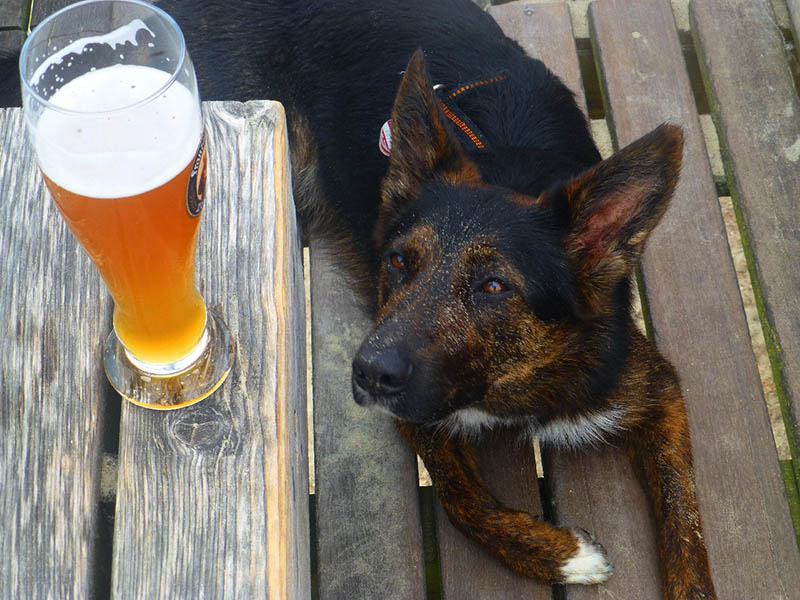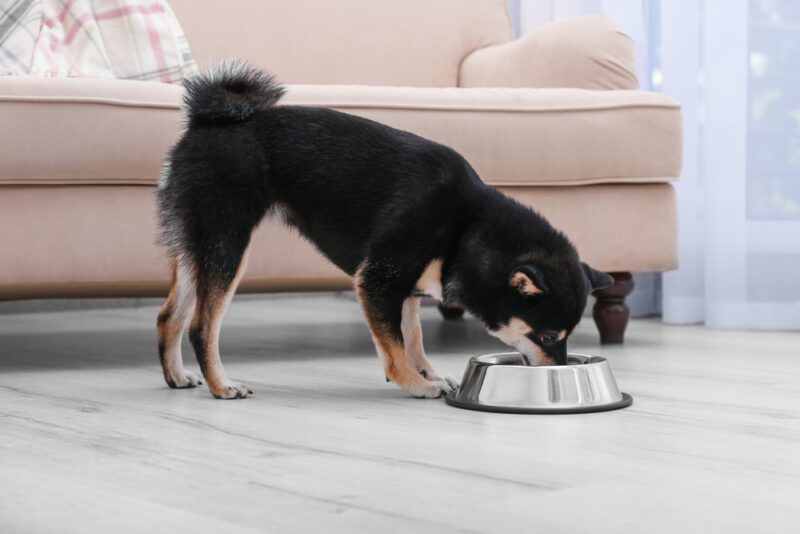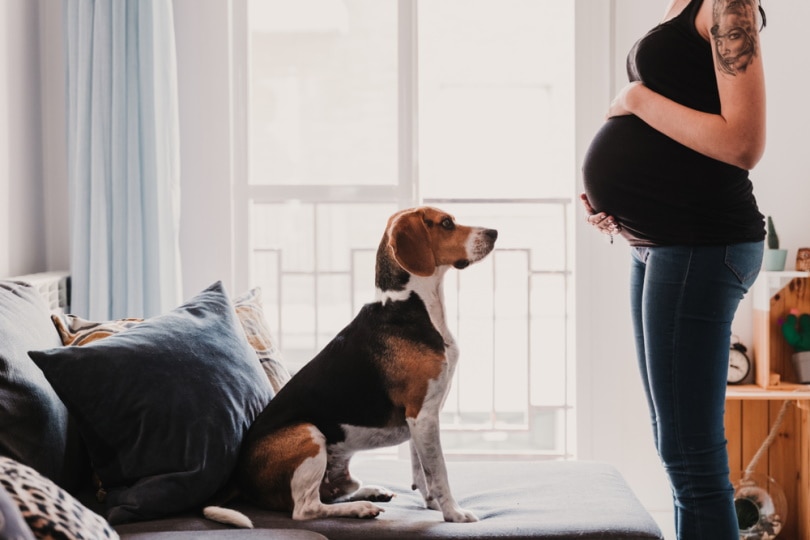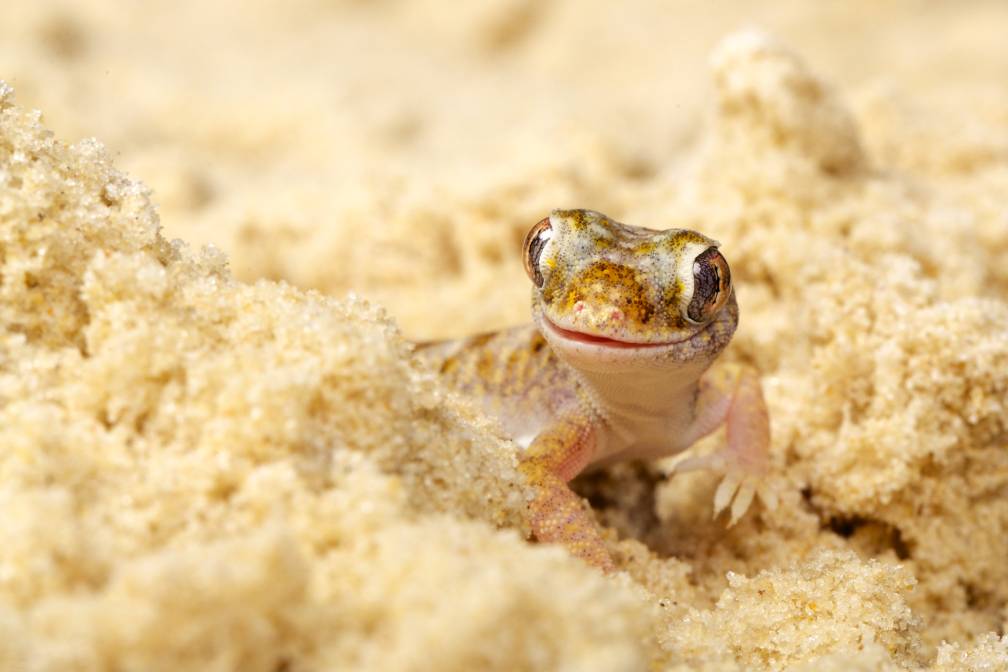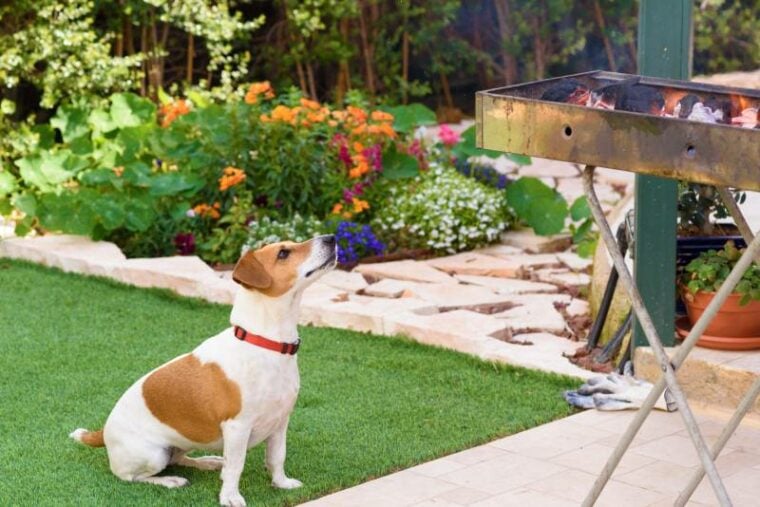
You aren’t the only one who thinks the meat slathered on the grill smells delectable—so do your pets! While you’re grilling at the barbecue, you might have to take extra precautions to ensure that your pets and your food stay separate.
Here are five tips to keep nosy fur babies out of your cooking and off the folding tables, and nine BBQ foods that can be toxic to pets.
The 5 Tips to Keep Your Pets Safe During a BBQ
1. Keep Your Pet Completely Away from the Grill
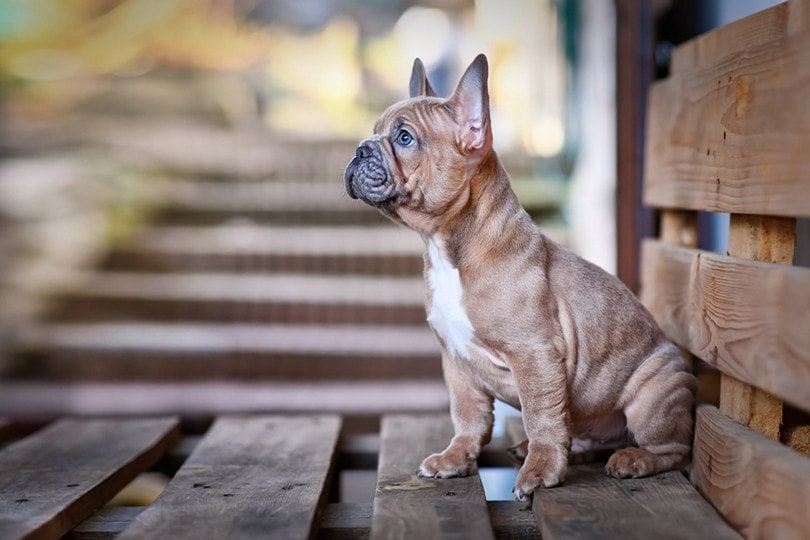
Dogs and cats get very curious about the aromatic smells coming from the grill area. They might be trying to nose their way through when you aren’t looking to nab a hotdog or burger.
Don’t even give your pets the option. Simply keep them away from the grilling area at all costs. It’s so easy for noses, paws, mouths, and other body parts to scorch.
Burns are severe—and they can be very costly to treat. On top of surface wounds, burns are at very high risk for infection (which can be deadly).
It might be a bit challenging to create a setup, keeping your pets away but still making the area accessible to you. You may want them to run around the backyard to play while you enjoy your outdoor sizzling.
Both are still entirely possible—but you might have to get creative in finding a barrier that works.
2. No Feeding Grilled Foods that Can Make Your Pet Sick
Sure, most dogs and cats would jump at the chance to take a lick of dripping grease or take a hotdog off the plate. But this can be very problematic later.
Human foods of all sorts, especially greasy meats, can cause general stomach upset, diarrhea, or vomiting. It’s not worth cleaning up messes on the carpet later.
Keep your pet away from any remnants or leftovers to prevent sickness. Undercooked meats can also lead to more significant issues like food poisoning from salmonella or E. coli bacteria.
If your pet suffers from these illnesses, it can be a recipe for vet visits—which can result in financial strain and even hospitalization for the pet.
While most animals can tolerate some undercooked meat, it isn’t worth the risk of exposure. So, even tossing your pet a chunk of the goodies to get them off your back isn’t a good plan.
3. Distract Your Pets with Play

If your pets don’t stop lingering around, give them something to do to get their attention off the yummy food. Have the kids come outside for a game of fetch, or let them run in a fenced-in area with a buddy.
A member of the family can also use this time while the food cooks to teach your pet a new trick. Grab some dog or cat-friendly snacks and practice a new skill.
It’s a win-win situation. Your animal gets a little taste to fill the appetite and you get to grill in peace.
4. Make Sure to Keep Sensitive Pets Away from Smoke
If you have an animal with a sensitive respiratory system, it won’t be a good idea to have them around the smoke. Keep them out of range of the billowing blows of smoke (even if their mouth is watering over the smell).
Downwind fumes can impact your pets, so make sure very sensitive caged creatures (like birds) are placed in an area that is protected.
5. Put Away All Grilling Supplies Directly After Use

Don’t let your pet near any of the supplies you use to grill. That means keeping things like lighter fluid, charcoal, matches, skewers, and knives put up out of reach.
You might not think pets would be interested in these things, but it’s entirely possible (especially if they smell a combination of food items that attract them.)
Your dog licking on a steak knife or getting a skewer through the paw isn’t the best way to make a barbecue a happening time. So, just remember to be responsible and put all items up before you let them have access again.
The 9 BBQ Foods That Can Be Toxic to Pets
Here is a brief list of potentially dangerous or problematic foods animals can come into contact with at the family barbecue.
1. Bones
Even though bones are full of calcium, it can be a substantial hazard to domestic pets like dogs and cats. Many cooked bones splinter easily and can get lodged in the throat, stomach, and intestines. Emergency surgery is sometimes necessary, and it can even be deadly for some. So always make sure to discard any bones appropriately.

2. Fat
Even though your dog or cat might want to chow down on the fat from grilled meats, it is not good for their digestive tract.
3. Grease
Grease might be appetizing to your animal, but it’s not good for their health.
4. Guacamole
Even though we humans think that guacamole is delicious and complementary to many different cuisines, avocado pits are toxic to domestic pets.

5. Salsa
Tomatoes might be acidic, but by themselves, they are not toxic (as long as they’re ripe.) However, some of the additives in salsa include onion, garlic, and other common additives which are toxic to pets.
6. BBQ Sauce
Barbecue sauce might seem like a completely harmless food item to share with your pup, but nothing could be farther from the truth. Barbecue sauce contains toxic ingredients like onion and garlic. So, it’s best to steer clear entirely.
7. Alcohol
Who doesn’t love an ice-cold beer with a backyard BBQ feast? Your dog might jump at the chance to get some barley and hops, but it is absolutely not good for them in the slightest.
8. Corn Cobs
Corn cobs are not toxic to pets, but they can pose a major choking hazard. So, while these juicy, chewy veggies can be attractive, especially to dogs, it poses major risks—including intestinal blockages if swallowed.
9. Xylitol
Xylitol is an artificial sweetener that is extremely risky for pets but not for people. It’s common for certain food products to contain this potentially lethal substance. They can have some dire consequences.
While it’s best to keep your dogs and cats away from people’s food entirely, it is especially important with these ingredients. So always sweep the ingredients label before you ever share any of your food items with your animals.
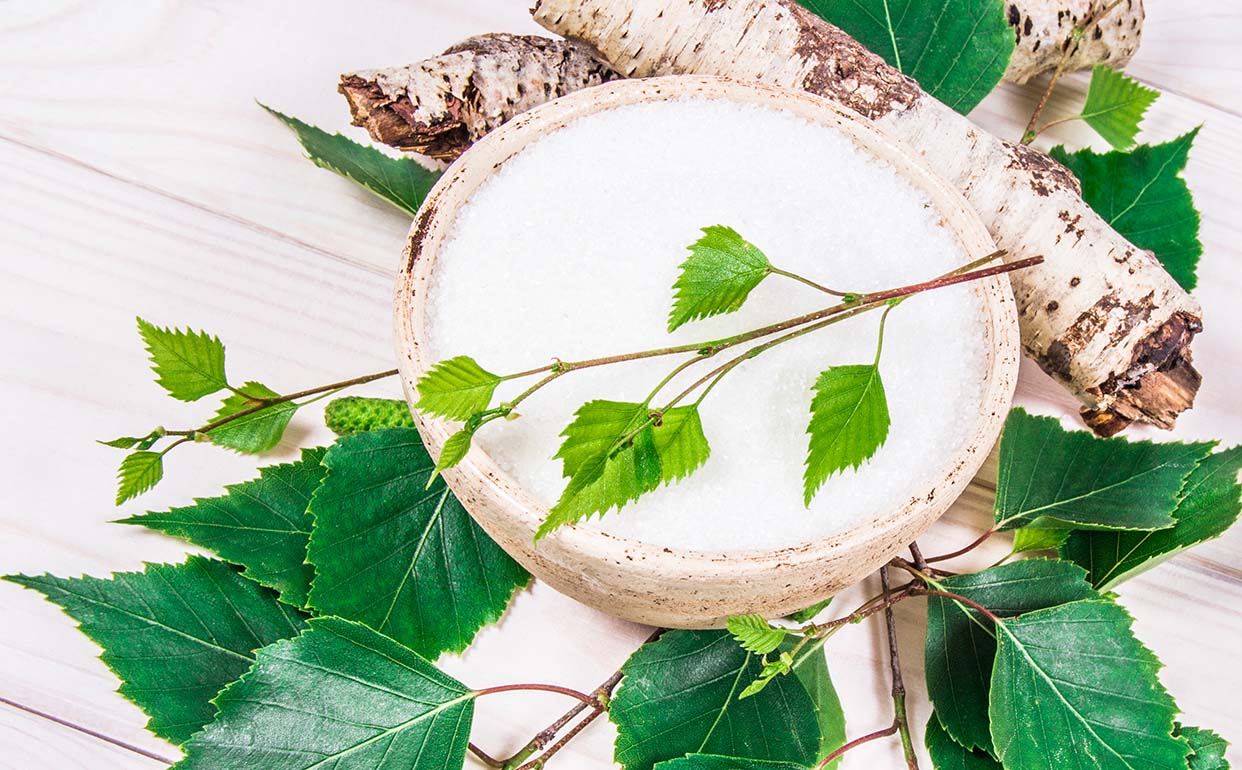
Conclusion
So, now you have all the basic knowledge you need to keep your pets safe at the barbecue. The best thing to do is to keep caged pets indoors and separate animals like dogs and cats from the food prep/eating area. The smells will be enough to draw in your pets—and the neighborhood gang, too.
As long as you keep your pets and barbecue apart, the event should run smoothly. Not only can these events pose a risk to your pets, but they might also get up on the table and rob you of your burgers and dogs—then everyone loses. Have a safe and happy barbecue season.
See also: Can Dogs Eat Carne Asada? Vet Reviewed Facts & FAQ
Featured Image Credit: Inna Reznik, Shutterstock



